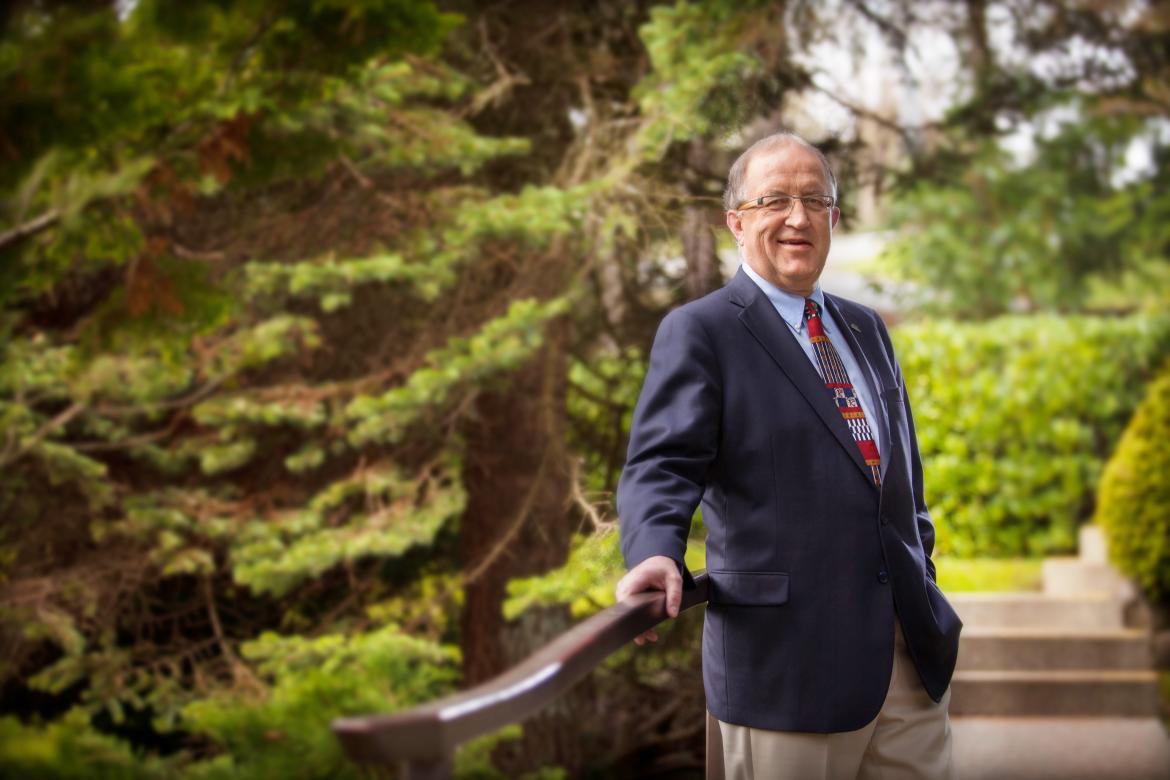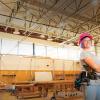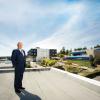
January 8, 2018 - 6:15pm
VIU has a vision of a mid-Island with a thriving mix of businesses and industries setting up shop and taking advantage of a large pool of talented, skilled workers. In this vision, the job outlook is in the top third in BC, participation in the economy is high and so is the quality of life.
To achieve this, VIU has launched the VIU Education Enterprise Region, a long-term strategy for economic growth that calls for partnerships between educational institutions, First Nations, businesses and communities. The University can be a catalyst for change, addressing the region’s challenges and creating opportunities.
Why is this strategy necessary and why VIU? We asked Dr. Ralph Nilson, VIU’s President and Vice-Chancellor, those questions. Here’s what he shared with us.
#1: Why did VIU decide to launch the Education Enterprise Region and why is it important that VIU takes on this leadership role?
We’ve been thinking about this for a long time because of the economic transition that’s happening on Vancouver Island. We’re evolving from a resource extraction economy to a knowledge-based economy. In the past, people have not needed post-secondary education to be engaged in the economy. As a result, the number of people in our region who have a post-secondary education is low. Today, two key determinants of population health are education and income and you need the education to get the income. VIU is uniquely positioned, with our broad range of programs, to provide education that enhances people’s potential to engage in the knowledge-based economy. Also, if we want to attract and retain business and industry in our region, we have to demonstrate a highly qualified workforce is available. Education is a key determinant of social change and sustainable economic prosperity for individuals and the community.
#2: What role does education play in the region?
Education is a great leveler in terms of providing people with opportunities to engage in the economy. It is essential to developing a prosperous social and economic environment. VIU recognizes our role as a post-secondary institution to ensure all populations have access to high-quality learning experiences. Equally important is working to provide transitions for people from post-secondary to employment opportunities so graduates can become fully engaged, contributing members of society. The University is also an important portal for attracting international students who emerge as highly qualified personnel needed to contribute to growing our economy.
#3: What are the strengths and challenges of the mid-Island region?
We are blessed with a beautiful environment, the best weather in Canada, a relatively reasonable cost of living and supportive communities. Challenges we face include a growing number of children living below the poverty line, large numbers of First Nations communities that have limited resources to support the fastest growing population of young people in the country to attend post-secondary, and low transition rates from high school to post-secondary education. We also have a large population of children living in care with low high school completion and transition rates.
The data suggests that 80% of all future jobs will require some form of post-secondary education. We can no longer continue in an environment where access to this education is limited to a few. That is why we have supported a tuition waiver for all former youth in care. This is an investment in reconciliation given that 64% of the foster care population is Indigenous, a direct result of the inter-generational impact of residential schools. We have also invested in a Canada Learning Bond coordinator to build awareness and register low-income families for free grants to help them save for their children’s education. I won’t be here at VIU when those first students come, but it’s going to change the face of Nanaimo when they graduate and go to work. We’re also currently working with national and international foundations to invest in the challenge of access for populations who currently don’t have a choice. We see it as the role of a post-secondary institution to take action, not just theorize about that action. The whole idea behind all of this is moving an impoverished population into participating in the economy. By forming partnerships with businesses and communities, this enterprise region can be a catalyst that addresses the challenges. The fundamental basis is building an educated workforce.
#4: How do you see Nanaimo and VIU changing in the next 20 to 30 years?
I see the University continuing to evolve, grow and engage with communities to meet the needs of an evolving environment. One example is the new buildings currently under construction at our Nanaimo campus – the new Health and Science Centre; Marine, Automotive and Trades Complex; and District Geo-Exchange Energy System will help us meet the research, innovation, education and job training needs in our region. I see Nanaimo evolving to become a vibrant social and economic hub on Vancouver Island where people recognize the strength of the human capital that exists in the region and as a result, decide to locate or relocate their businesses in Nanaimo.
Partnerships will be key, and we have to have a long-term focus on the specific challenges and opportunities in the region. We need to determine what the needs are — what is needed to grow and have businesses relocate here, and what resources we need to train and educate the population. I see us continuing to build relationships to support student success from the K-12 system to university, and build relationships with business and industry to support the transition of graduates into the workforce. We need to continue to build these relationships and be deliberate in our actions. If we do that, this region will have a very strong future.

*This article originally appeared in the Winter 2017/18 edition of VIU Magazine. Check out more stories on the VIU Magazine webpage.
Tags: VIU Magazine






